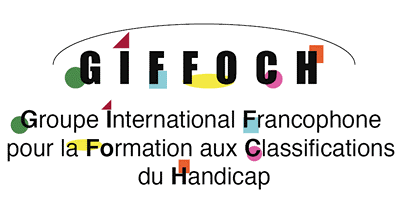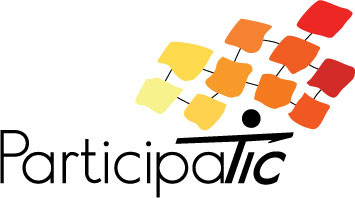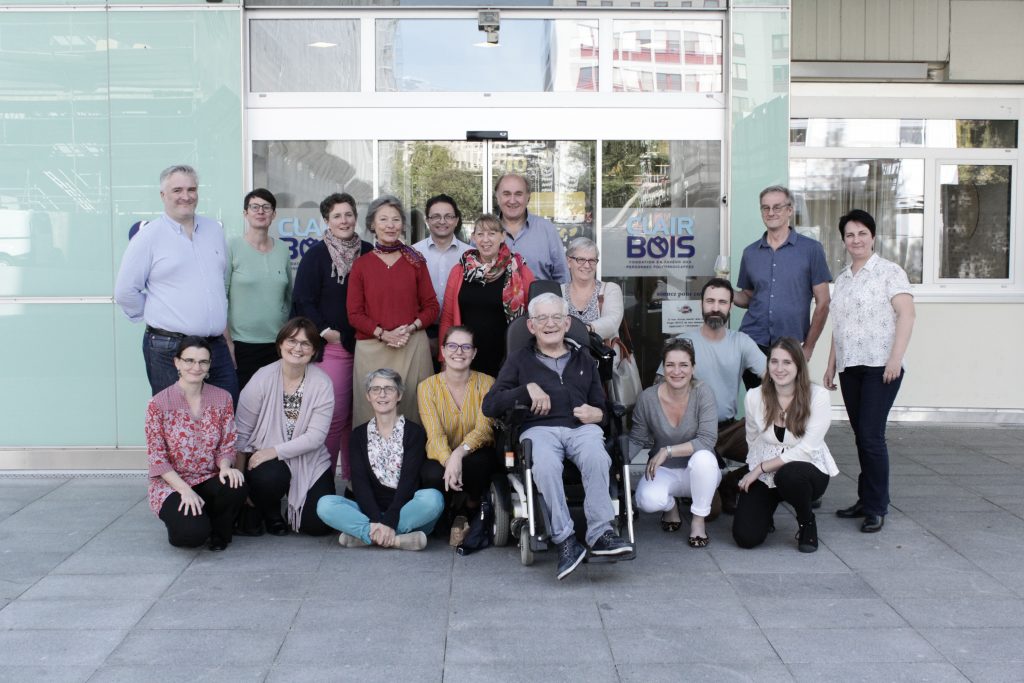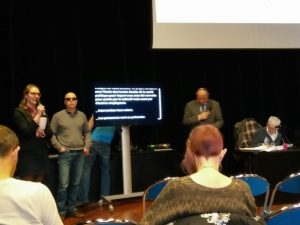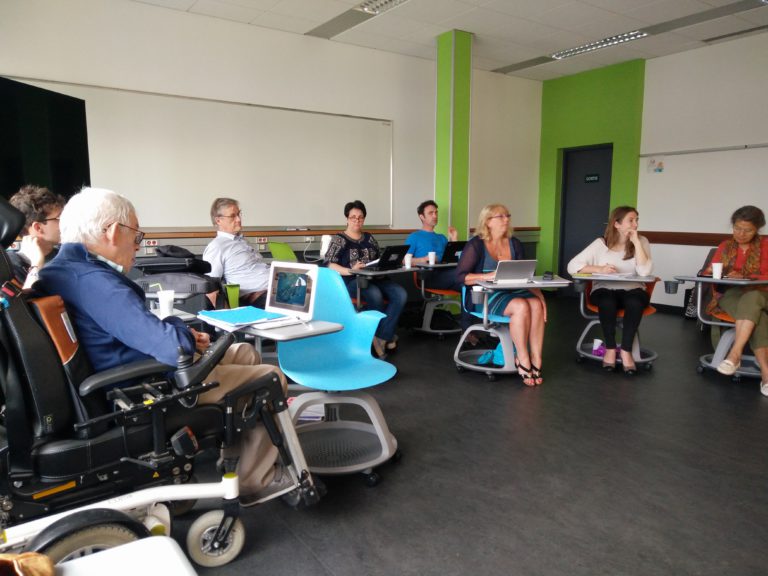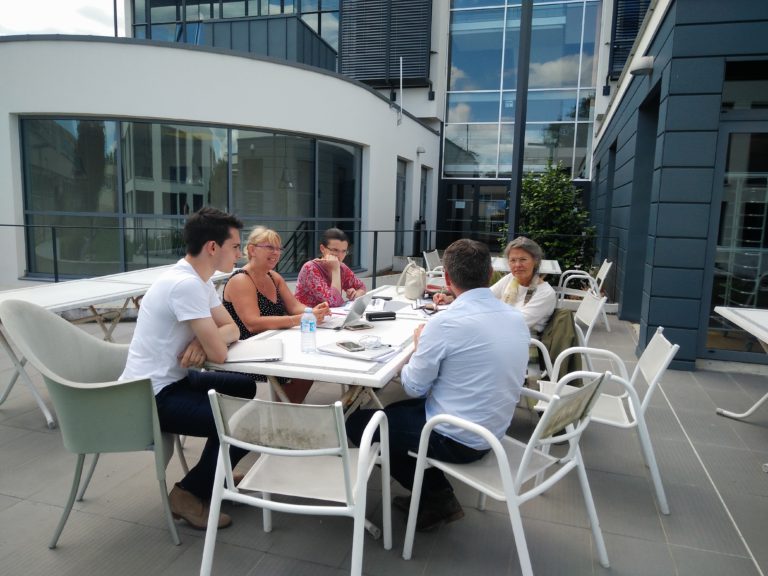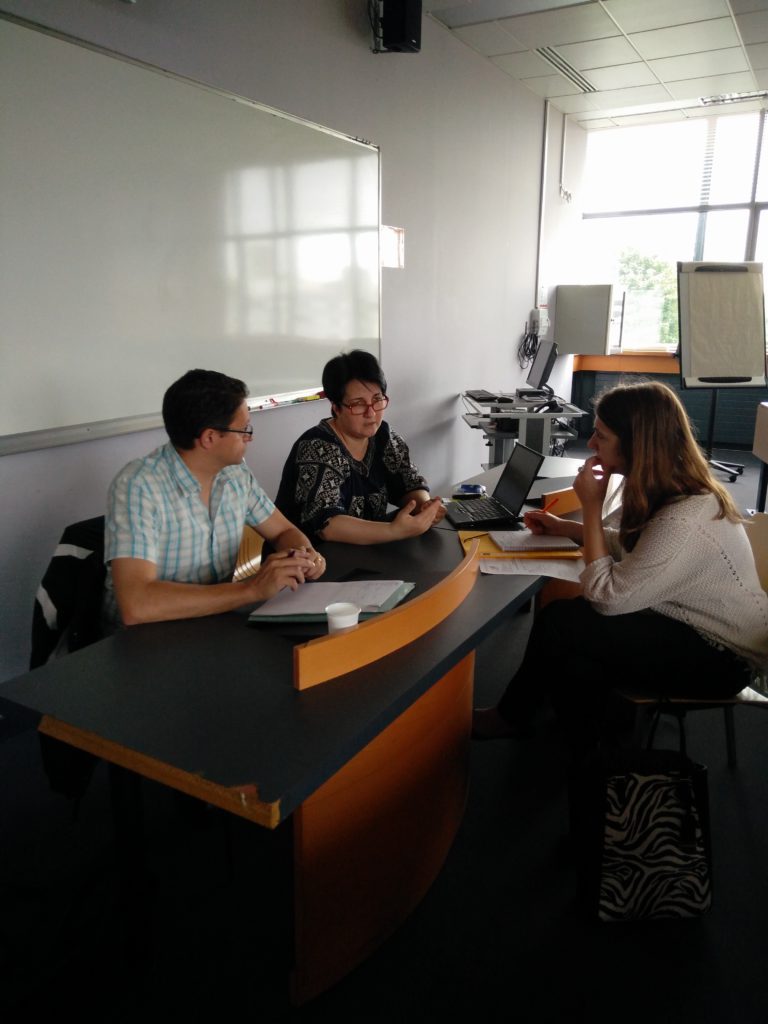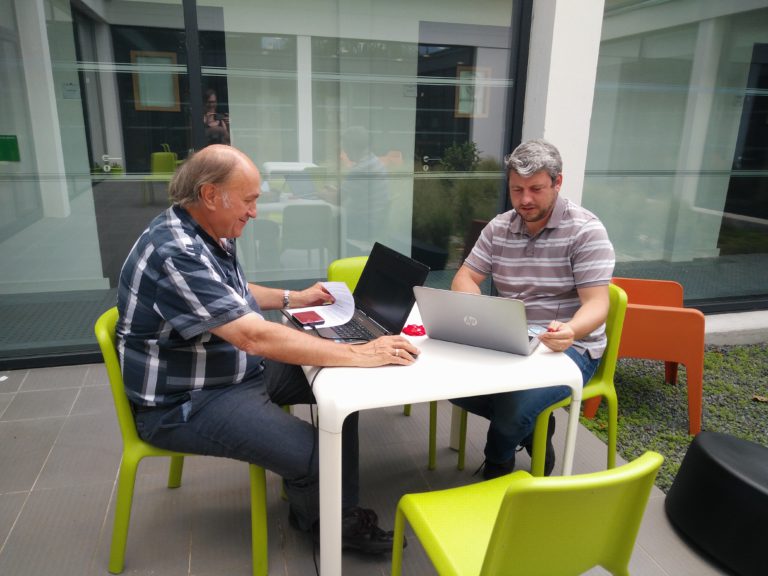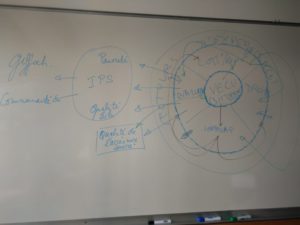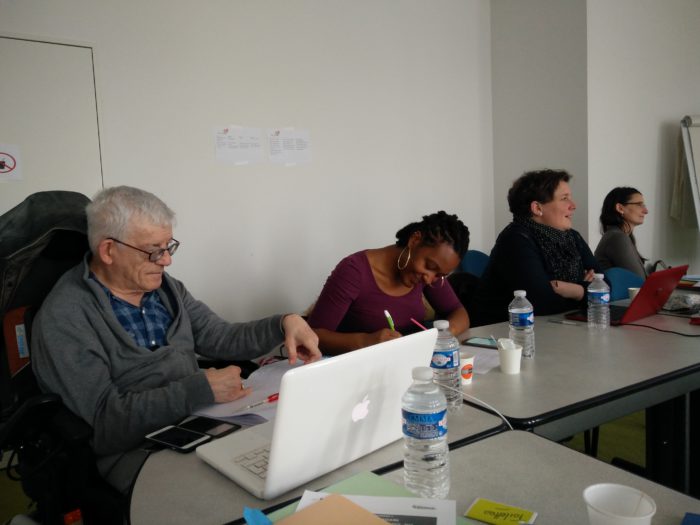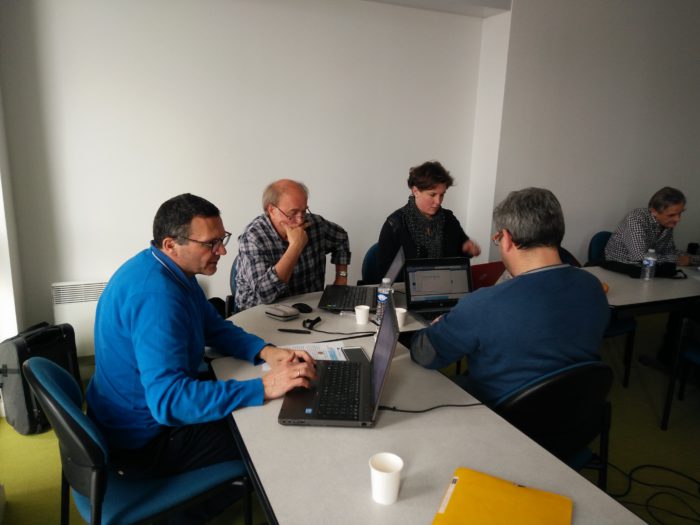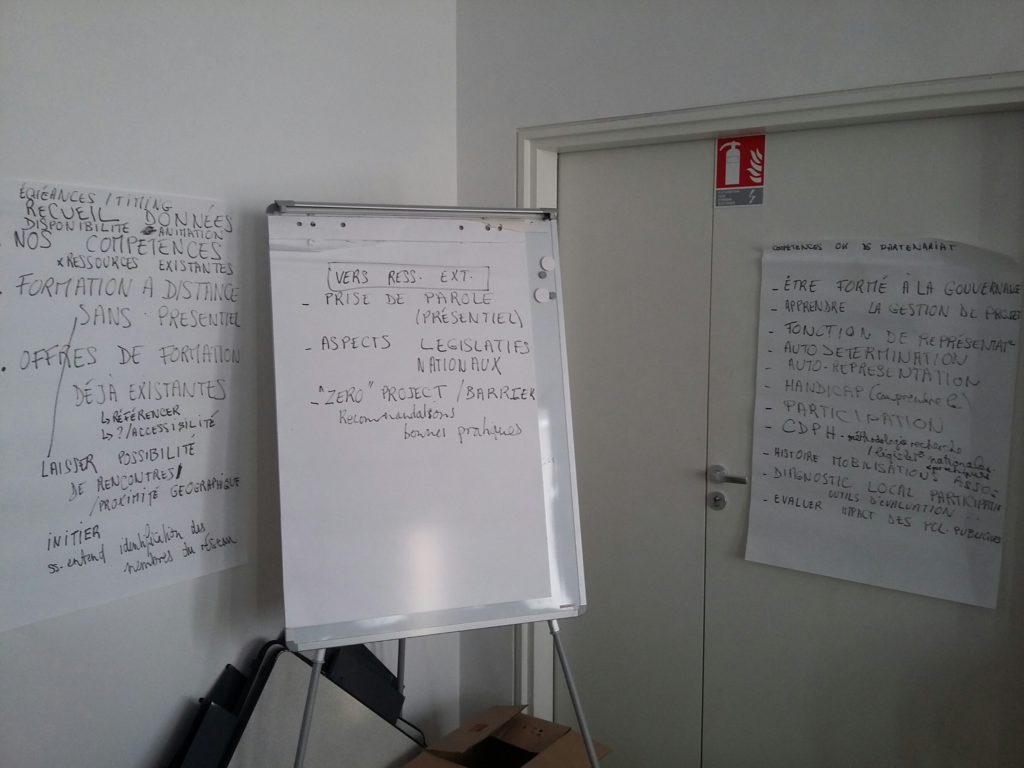Preliminary feedback following the Events of dissemination E1,E2
(Please note general feedback from the participants is not reported here.)
Generally spontaneously offered feedback and opinions on the conference were very positive. The quality of debates and presentations was remarked on, concrete questions were specifically dealt with, the round table discussion on inclusion was much appreciated as were the interventions of Siddo Oumarou and M. Gohet. Representatives from the Collectif 35 and other interventions were of high quality. Positive evaluations of the different workshop sessions were given, even if at times it was felt by some that longer sessions could have been planned. They enabled also exchange of experiences between participants and representatives. The World cafe session was also appreciated and spurred particpants to potentially invest further in the project. The need to form a ‘community of practice’ became more and more obvious throughout the session and was accompanied by a desire to stay in touch with the project and other particpants, thus combining personal and collective interests and dimensions.
There were also a number of negative views shared among the participants. The most important of these being the fact that over 40% of people enrolled in the conference did not finally attend even after receiving an e-mail requesting confirmation. The fact that the conference was free was cited by many. In the final report partners have mentioned that there were several people from abroad needing visas, and unfortunately these had not been delivered in time for attendence. Furthermore it was regretted by some that the content was frequently too difficult for people with intellectual disabilities to follow. No doubt this particular area of accessibility could be improved. Certain similarly pointed out that the conference seemed very theoretical.
Remarks about the Plateform
- Easy to Read , Easy to Understand . It is nescessary to explain on the home page how Easy to Read , Easy to understand language has been incorporated into the project. Certain complicated words could be further simplified. The interest of voice off is very much open to debate. On particpant has offered to draw up An easy to read, easy to understand questionnaire for module 4.
- Time for debate for and for sharing experiences during the plenary sessions would have been much appreciated.
Questions concerning how the quizzes were marked have arisen. It will be necessary to explain in some detail the basis of how they are scored.
A proposal to translate the platform into Italian has been made. This needs to be studied from a financial and technical viewpoint.
It is felt that the the content of the modules should become fixed but with only minor revisions. It was also felt that a glossary would be of great utility.
A request for training from the MDPH (official assessment body in the Ille et Vilaine Departement) has been received.
A film explaining the ParticpaTIC project would be most welcome as would improved digital accessibility with respect with the employment of people with disabilities.
Preparation of the final report
Each partner should send their contributions for mid-July, the end of the project is sceduled for th 31st August 2019 .
A overall summary of each workshop will be prepared through studying completed questionnaires and notes taken. A summary will be integrated into the final report subsequently. Similarly a report based on the feedback and proposals elicited during the World forms. Lastly an overview integrating the diverse evaluations of the conference will be drawn up.
Remaining tasks
Translation of the guides into Romanian is in its re-reading phase whilst translation of the platform has just been initiated. Translation into easy to read English of certain content items is also envisaged shortly.
A renewed V2 version of the learning platform is planned for 2020.
A meeting of the GIFFOCH is planned for the 27 and 28 Novemeber. This will take place at Saint-Denis in the premises of EHESP.
The partners of the forthcoming will also discuss the future and management of the platform. This will include general reflexion on the rôle and mission of the GIFFOCH and more specifically the ParticipaTIC platform and its participatory collaborative organisation.
Conference organised by ASA-Handicap at Sierre Switzerland 22/08/2019
This will take place following the final meeting on ParticipaTIC. The coordinator of the project at this occasion would very much like to give grateful thanks to all the partners for their contribution and work during three very active years. A wonderful project shared by all.

Linked’in : https://www.linkedin.com/groups/8633531

Facebook : https://www.facebook.com/ParticipaTic/

Twitter : https://twitter.com/Participa_TIC


